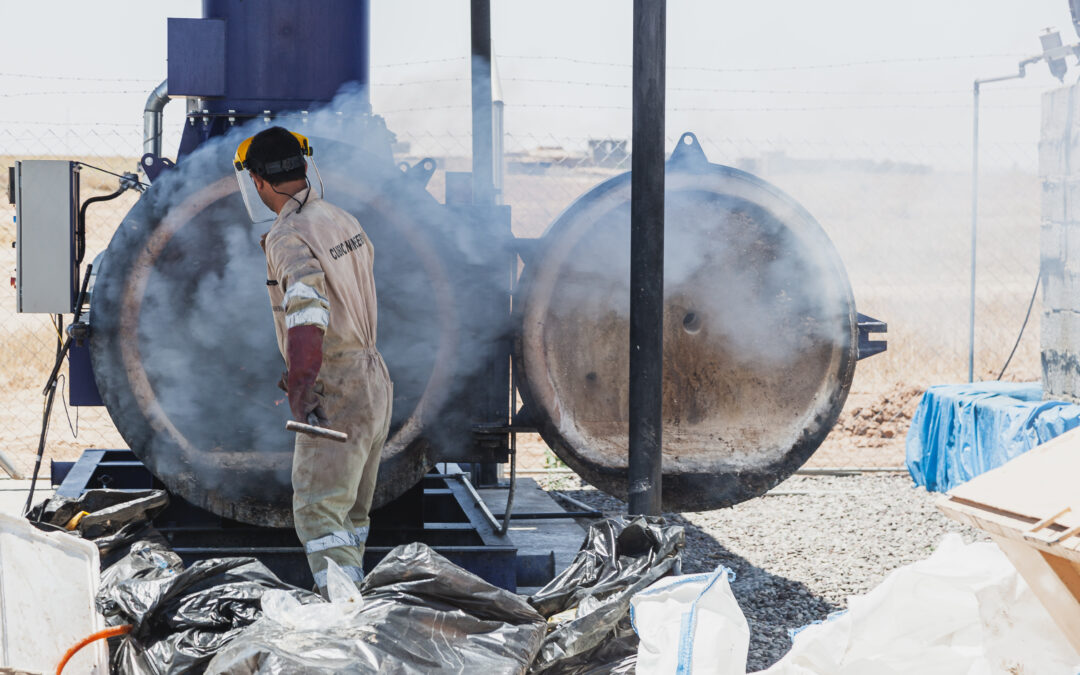In the dynamic and rapidly evolving oil and gas industry, efficiency is not just a goal but a prerequisite for sustainable operations and optimal returns. One of the critical components that significantly contribute to achieving this efficiency is the use of separators, specifically 3-phase and 4-phase separators, in oil and gas operations.
These devices play a fundamental role in the extraction and refining processes, ensuring the separation of oil, gas, water, and in some cases, solid sediment. This introduction delves into the importance and role of these separators and how they can be leveraged to maximize efficiency.
The 3-phase and 4-phase separators are not just pieces of equipment; they serve as the core of the oil and gas extraction process. Their ability to segregate different components efficiently and effectively translates to smoother operations, reduced wastage, minimized environmental impact, and increased profitability.
The efficiency of these separators is not a static measure but can be enhanced and optimized with a keen understanding of their functioning, regular maintenance, appropriate adjustments, and technological advancements.
Understanding the Basics of a 3 Phase Separator
A 3 phase separator is an essential piece of equipment in oil and gas operations designed to efficiently separate crude oil, water, and natural gas. These separators work using a combination of fluid flow control, gravity separation, and centrifugal force to differentiate these three components.
The primary advantage of using a 3 phase separator is to facilitate accurate data collection, optimize production rates, and reduce the environmental impact through responsible fluid management. There are various configurations of 3 phase separators, including horizontal, vertical, and spherical separators, each with its advantages and applications.
Key Components of a 4 Phase Separator
In addition to separating oil, water, and gas, 4 phase separators, also known as sand separators or sand traps, have the ability to manage and separate solid particles, such as sand or other sediment. This added functionality is crucial for well operations that involve a high concentration of solids in the produced fluids.
Efficient removal of solids is vital in maintaining well integrity and preventing mechanical damage to equipment downstream of the separator. 4 phase separators typically incorporate additional mechanisms, such as desanding hydrocyclones or other solid-handling systems, to manage the separation of solids from fluids effectively.
Choosing the Right Separator for Your Operations
When determining which separator is appropriate for your oil and gas operations, it is essential to consider several key factors:
- Well Characteristics: Evaluate the nature of your well, including its production rates, fluid composition, sand production potential, and any other relevant operational parameters. This analysis will help you decide between a 3 phase separator or 4 phase separator.
- Project Budget: When choosing a separator, consider the cost of acquisition and installation, as well as the ongoing expenses associated with maintenance and operation. You may want to consult with an expert like Tiger Safety Rentals to identify the most cost-effective equipment for your needs.
- Environmental Compliance: The separator you choose must help you maintain compliance with environmental regulations and industry standards, ensuring responsible fluid management and minimizing the environmental impact of your operations.
- Operational Flexibility: While some wells may only require a relatively simple 3 phase separator, others may need a more advanced 4 phase system to manage the various complexities of oil, water, gas, and solids separation. It is essential to select equipment that effectively adapts to your well’s unique needs.
Maintenance and Monitoring: A Vital Aspect of Separator Performance
To ensure optimal separator performance and comply with industry standards, ongoing maintenance and monitoring are essential. The following aspects should be regularly inspected and maintained:
- Pressure and Level Control: Regularly monitor and adjust the pressure and fluid levels within the separator to ensure optimal separation efficiency and identify any potential issues.
- Internal Components: Inspect and maintain the various internal components of the separator, such as vane packs, diffusers, and weir plates, to ensure proper operation and prevent process disruptions.
- Instrumentation: Accurate and reliable instrumentation is critical for monitoring the performance of the separator and the efficiency of the separation process. Regularly calibrate and service all instrumentation to ensure accuracy and reliability.
- Solids Handling: In the case of 4 phase separators, regular attention must be given to the solids-handling components, such as desanders or cyclones, to maintain optimal well efficiency and prevent equipment failure.
How Tiger Safety Rentals Can Improve Your Separator Operations
At Tiger Safety Rentals, we are dedicated to providing oil and gas companies with tailored, high-quality equipment solutions designed to enhance well efficiency and safety. Our range of 3 phase and 4 phase separators are meticulously designed and engineered to meet the diverse needs of your operations:
- Industry Expertise: Our team of experts boasts extensive experience in the oil and gas industry and is well-versed in the optimal selection, installation, and operation of both 3 phase and 4 phase separators. We can provide invaluable guidance to ensure your well processes are running efficiently.
- Customizable Solutions: Our range of separators can be customized to cater to the unique demands of your operations, ensuring that your equipment is ideally suited to your well parameters and environmental compliance requirements.
- Reliable Equipment: At Tiger Safety Rentals, we take pride in offering top-of-the-line equipment constructed from high-quality materials and designed to withstand the demanding conditions of the oil and gas industry.
Harnessing the Power of 3 Phase and 4 Phase Separators for Optimum Well Efficiency
In the oil and gas sector, choosing the right separator, whether a 3 phase or 4 phase, is essential to maximizing well efficiency and environmental responsibility. By partnering with Tiger Safety Rentals, you can benefit from our industry expertise, personalized service, and commitment to providing high-quality, cost-effective equipment solutions tailored to the unique demands of your projects.
Reach out to us today to discuss your 3 phrase or 4 phase separator needs and discover how Tiger Safety Rentals can help your oil and gas operations thrive.

